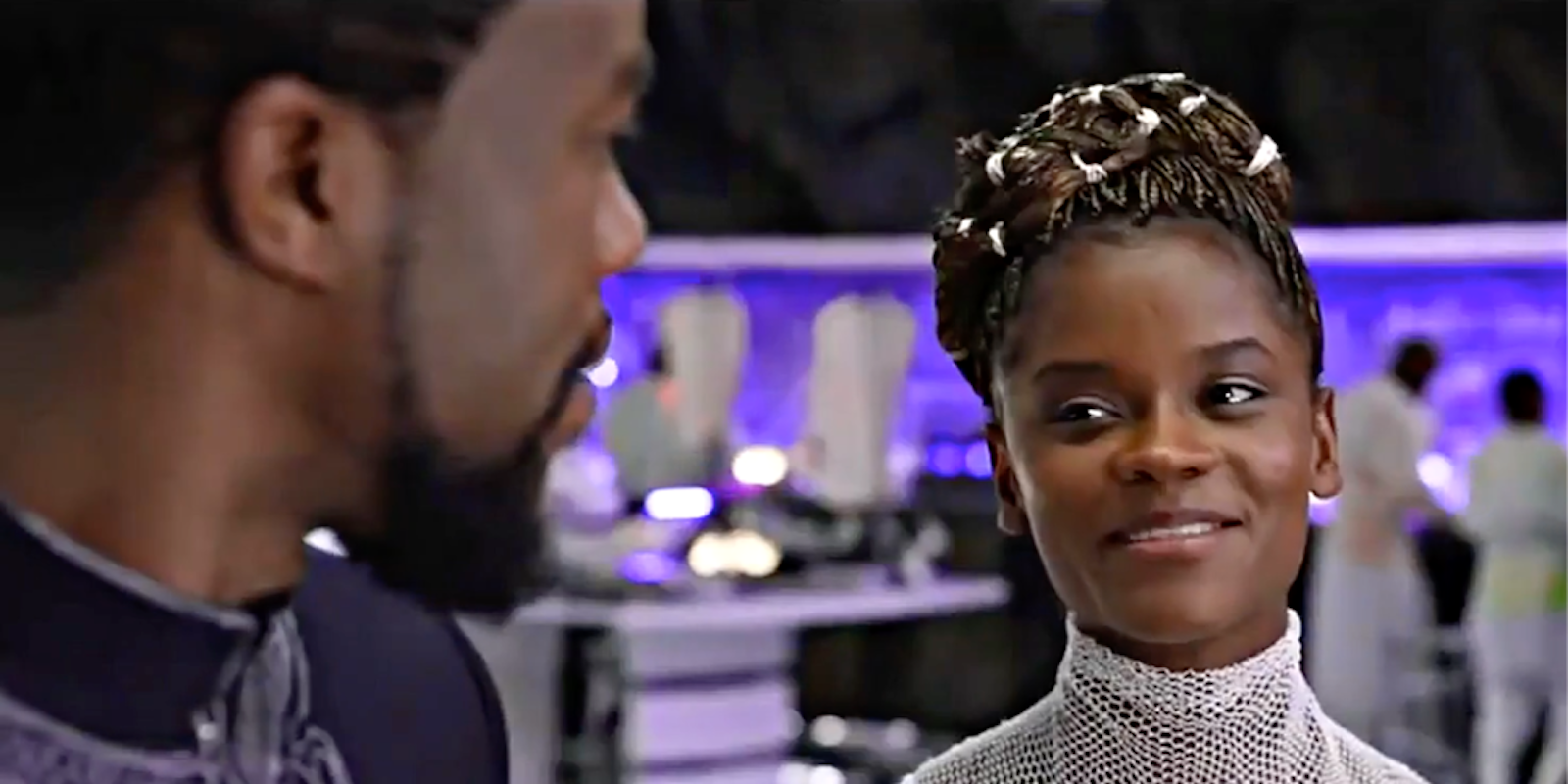Black Panther, Marvel’s latest blockbuster, has been widely praised for its casting, fashion, soundtrack, and oh my god the designs of those Wakandan ships, but it also excelled on another important level: memes. It was particularly cool to see “What are those?“—a hugely popular catchphrase born from Black internet culture—pop up as a gag in the movie.
“What are those?” is a sarcastic, hilarious way of mocking someone’s shoes. The words themselves say that you really want to know what kind of cool kicks they’re wearing, but the tone says “ahahah, look at that garbage footwear.”
The phrase originated in 2015 on Instagram and went viral on Vine, the late, great video platform whose comedy scene was dominated by funny black creators. The original video, by Brandon Moore, showed a conversation with a police officer at the scene of an arrest. Moore told the officer, “I got one question for you,” then panned the camera down to the officer’s bland, standard-issue shoes.
“WHAT ARE THOOOOOOOSE?! WHAT. ARE. THOSE?” he shouted, making history.
Nearly three years later, the phrase would appear in Black Panther. T’Challa the Black Panther, a superhero and the king of a powerful nation, gets a big “WHAT ARE THOSE?!” from his smart-aleck younger sister, Shuri. Zoom in on Black Panther’s ugly sandals. Cue audience laughter. Shuri 1, T’Challa 0.
“What are those?” is now officially so big that it made waves in Wakanda, a country that intentionally isolates itself and its advanced technology from the world.
Marvel could have added any meme to Black Panther for an extra laugh. Spider-Man: Homecoming put the “this is fine” dog on Peter Parker’s laptop, for example. Instead, Black Panther’s creators chose to carry on the legacy of “What are those?”—a meme from and for Black internet spaces, a meme that originally mocked the police as they arrested a Black woman, a meme that white teens also loved (even if they could never quite pull it off).
You’d be hard-pressed to find a more fitting bit of internet culture to add to a movie that, as Washington Post put it, “fully embraces its blackness.”


